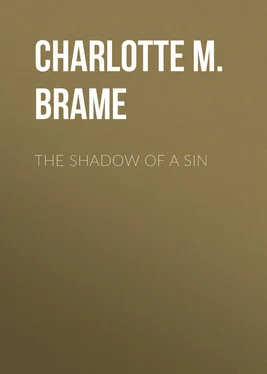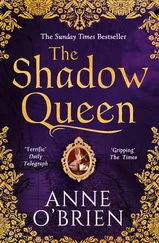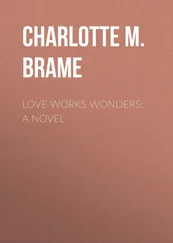Charlotte Brame - The Shadow of a Sin
Здесь есть возможность читать онлайн «Charlotte Brame - The Shadow of a Sin» — ознакомительный отрывок электронной книги совершенно бесплатно, а после прочтения отрывка купить полную версию. В некоторых случаях можно слушать аудио, скачать через торрент в формате fb2 и присутствует краткое содержание. ISBN: , Жанр: foreign_antique, foreign_prose, на английском языке. Описание произведения, (предисловие) а так же отзывы посетителей доступны на портале библиотеки ЛибКат.
- Название:The Shadow of a Sin
- Автор:
- Жанр:
- Год:неизвестен
- ISBN:http://www.gutenberg.org/ebooks/42320
- Рейтинг книги:4 / 5. Голосов: 1
-
Избранное:Добавить в избранное
- Отзывы:
-
Ваша оценка:
- 80
- 1
- 2
- 3
- 4
- 5
The Shadow of a Sin: краткое содержание, описание и аннотация
Предлагаем к чтению аннотацию, описание, краткое содержание или предисловие (зависит от того, что написал сам автор книги «The Shadow of a Sin»). Если вы не нашли необходимую информацию о книге — напишите в комментариях, мы постараемся отыскать её.
The Shadow of a Sin — читать онлайн ознакомительный отрывок
Ниже представлен текст книги, разбитый по страницам. Система сохранения места последней прочитанной страницы, позволяет с удобством читать онлайн бесплатно книгу «The Shadow of a Sin», без необходимости каждый раз заново искать на чём Вы остановились. Поставьте закладку, и сможете в любой момент перейти на страницу, на которой закончили чтение.
Интервал:
Закладка:
On the first day they met, his mother had warned him not to fall in love with the beautiful girl, who might be an heiress or might have nothing – to remember that in his position he could marry whom he would, and not to throw himself away.
Lady Vaughan, too, on her side, seemed much disposed to forbid him even to speak to Hyacinth. If he proposed calling at Queen's Chase, she either deferred his visit or took good care that Hyacinth should not be in the way; and all this she did, as she believed, unperceived. It was evident that Sir Arthur also was not pleased; though the old gentleman was too courtly and polished to betray his feeling openly in the matter. He did not like Claude Lennox, and the young man felt it. One day he met the two young people together in a sequestered part of the Chase grounds, and though he did not utter his displeasure, the stern, angry look that he gave Claude, fully betrayed it. Hyacinth, whose glance had fallen to the ground in a sudden accession of shyness that she scarce understood, at her grandfather's approach, did not see his set, stern face. Nor did Sir Arthur speak to her of the matter. On talking it over to Lady Vaughan, the two old people concluded that a show of open opposition might awaken a favor toward Claude in the young girl's heart to which it was yet a stranger, and they contented themselves with throwing every possible obstacle in the way of the young people's intercourse. This was, in this case, mistaken policy. If the old gentleman had spoken, he might have saved Hyacinth from unspeakable misery, and his proud old name from the painful shadow of disgrace that a childish folly was to bring upon it. The young girl stood greatly in awe of her grandfather, but she respected him, and in a way loved him, through her fears. And she was now being led, step by step, into folly, through her own ignorance of its nature.
Claude Lennox was piqued. He was young, rich, and handsome; he had been eagerly sought by fashionable mothers. He knew that he could marry Lady Constance Granville any day that he liked; he had more than a suspicion that the pretty, coquettish, fashionable young widow, Mrs. Delamere, liked him; Lady Crown Harley had almost offered him her daughter. Was he to be defied and set at naught in this way – he, a Lennox, come of a race who had never failed in love or war? No, it should never be; he would win Hyacinth in spite of all. He disarmed suspicion by ceasing, when they met, to pay her any particular attention. His lady-mother congratulated herself; she retired to London, leaving her son at Oakton Park. He said his visit was so pleasant that he could not bring it to a close. The colonel, delighted with his nephew, entreated him to stay, and Claude said, smiling to himself, that he had a fair field and all to himself.
His love for Hyacinth was half-selfish, half-chivalrous. It was pique and something like resentment that made him first of all determined to woo her, but he soon became so interested, that he believed his life depended on winning her. She was so different from other girls. She was child, poet, and woman. She had the brightest and fairest of fancies. She spoke as he had never heard any one else speak – as though her lips had been touched with divine fire.
Fortune favored him. He went one morning to the Chase, and found Sir Arthur and Lady Vaughan at home – alone. He did not mention Hyacinth's name; but as he was going out, he gave one of the footmen a sovereign and learned from him that Miss Vaughan was walking alone in the wood. She had complained of headache, and "my lady" had sent her out into the fresh air.
Of course he followed her and found her. He made such good use of the hour that succeeded, that she promised to meet him again. He was very careful to keep her attention fixed on the poetry of such meetings; he never hinted at the wrong of concealment, the dishonor of any thing clandestine, the beauty of obedience; he talked to her only of love, and of how he loved her and longed to make her his wife. She was very young, very impressionable, very romantic; he succeeded completely in blinding her to the harm and wrong she was doing; but he could not win from her any acknowledgement of her love. She enjoyed the break in the dull monotony of her life. She enjoyed the excitement of having to find time to meet him. She liked listening to him; she liked to hear him praise her beauty, and rave about his devotion to her. But did she love him? Not if what the poets wrote was true – not if love be such as they describe.
CHAPTER V
So for three or four weeks of the beautiful summer, this little love story went on. Claude Lennox was au fait as to all the pretty wiles and arts of love, he made a post-office of the trunk of a grand old oak-tree – a trunk that was covered with ivy; he used to place letters there every day, and Hyacinth would fetch and answer them. These letters won her more than any spoken words; they were eloquently written and full of poetry. She could read them and muse over them; their poetry remained with her.
When she was talking to him a sense of unreality used to come over her – a vague, uncertain, dreamy kind of conviction that in some way he was not true; that he was saying more than he meant, or that he had said the same things before and knew them all by heart. His letters won her. She answered them, and in those answers found some vent for the romance and imagination that had never had an outlet before. Claude Lennox, as he read them, wondered at her.
"The girl is a genius," he said; "if she were to take to writing, she would make the world talk of her. I have read all the poetry of the day, but I have never read anything like these lines."
Claude Lennox had been a successful man. He had not been brought up to any profession – there was no need for it; he was to inherit a large fortune from his mother, and he had already one of his own. He had lived in the very heart of society; he had been courted, admired and flattered as long as he could remember. Bright-eyed girls had smiled on him, and fair faces grown the fairer for his coming. He had had many loves, but none of them had been in earnest. He liked Hyacinth Vaughan better than any one he had ever met. If her friends had smiled upon him and everything had been couleur de rose , he would have loved lightly, have laughed lightly, and have ridden away. But because, for the first time in his life, he was opposed and thwarted, frowned upon instead of being met with eagerness, he vowed that he would win her. No one should say Claude Lennox had loved in vain.
He was a strange mixture of vanity and generosity, of selfishness and chivalry. He loved her as much as it was in his nature to love any one. He felt for her; the descriptions she gave him of her life, its dull monotony, its dreary gloom, touched his heart. Then, too, his vanity was gratified; he knew that if he took such a peerlessly beautiful girl to London as his wife, she would be one of the most brilliant queens of society. He knew that she would create an almost unrivalled sensation. So love, vanity, generosity, selfishness, chivalry, all combined, made him resolve to win her.
He knew that if he were to go to Queen's Chase and ask permission to woo her, it would be refused him – she would be kept away from him and hurried away to Germany. That was the honest, honorable course, but he felt sure it was hopeless to pursue it. Man of the world as he was, the first idea of an elopement startled him; then he became accustomed to it, and began at last to think an elopement would be quite a romance and a sensation. So, by degrees he broke it to her. She was startled at first, and then, after a time, became accustomed to it. It would be very easy, soon over, and when they were once married his mother would say nothing; if the Vaughans were wise, they too would be willing to forgive and say nothing.
Читать дальшеИнтервал:
Закладка:
Похожие книги на «The Shadow of a Sin»
Представляем Вашему вниманию похожие книги на «The Shadow of a Sin» списком для выбора. Мы отобрали схожую по названию и смыслу литературу в надежде предоставить читателям больше вариантов отыскать новые, интересные, ещё непрочитанные произведения.
Обсуждение, отзывы о книге «The Shadow of a Sin» и просто собственные мнения читателей. Оставьте ваши комментарии, напишите, что Вы думаете о произведении, его смысле или главных героях. Укажите что конкретно понравилось, а что нет, и почему Вы так считаете.












